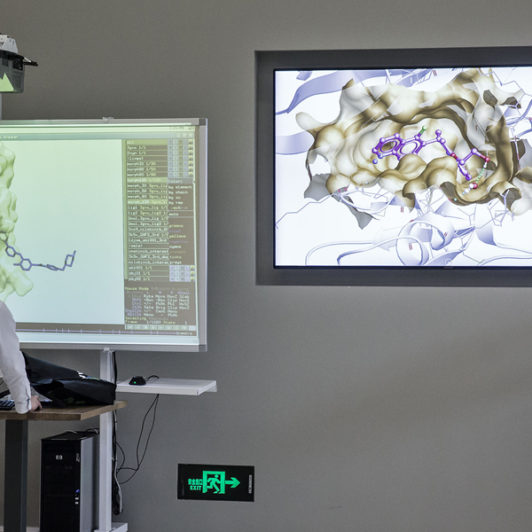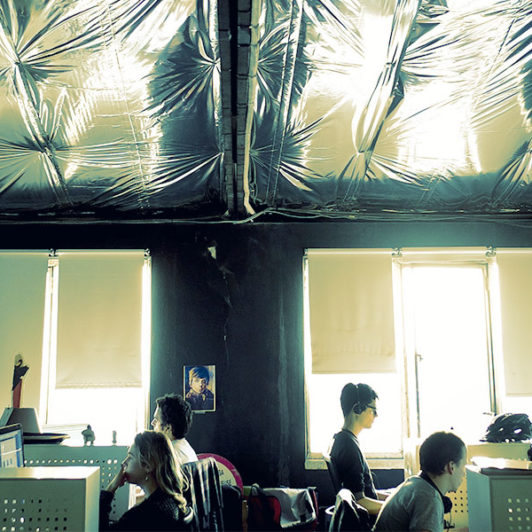Two Sigma Co-chairman David Siegel recently offered his views on these topics and more at Bloomberg’s Sooner Than You Think conference, held at Cornell Tech’s new campus on Roosevelt Island in New York City.
The campus is the site of Two Sigma’s Collision Lab, a new facility under construction inside The Bridge at Cornell Tech, that aims to encourage the cross-pollination of ideas among academics and industry practitioners in a vibrant, experimental environment.
How increasingly powerful algorithms impact business, employment, and education
Machine learning is “the story of our times,” says Siegel, calling it “the best way anyone has come up with to algorithmically find knowledge in unstructured data.” Although the technology is still in its infancy, Siegel notes that there are already signs that machine learning, and A.I., in general, may be suppressing wage growth and destroying certain types of skilled jobs as more—and more complex—tasks become automated.
You have to imagine that the impossible will become possible faster than you think. That is the way to be inventive.
David Siegel, Two Sigma Co-founder and Co-chairman
Siegel predicts a challenging adjustment period of perhaps 20 years, during which society will have to wrestle with issues such as privacy concerns, workplace disruption, and a shifting balance of power between humans and algorithms in a range of endeavors. Nevertheless, he is very optimistic that ultimately, machine learning and related technologies will profoundly improve humans’ quality of life.
To navigate the “bumps along the way,” he cautions, people and companies will need to change their own skills and learn to work in collaboration effectively with powerful algorithms.
Learning to thrive in the Age of Innovation
Companies consequently need to invest in talent and make innovation a strategic imperative, says Siegel, and industry and academia must work together to increase the rate at which great theoretical ideas are converted into practical, real-world solutions. The U.S., more broadly, should work to reinvent education at all levels, so that workers are able to perform high-skill work that is not readily automatable.
His advice to students: “Don’t underestimate the pace of change. You have to think outside the box. You have to imagine that the impossible will become possible faster than you think. And that is the way to be inventive.”
Watch David’s interview with Bloomberg’s Joel Weber here.






